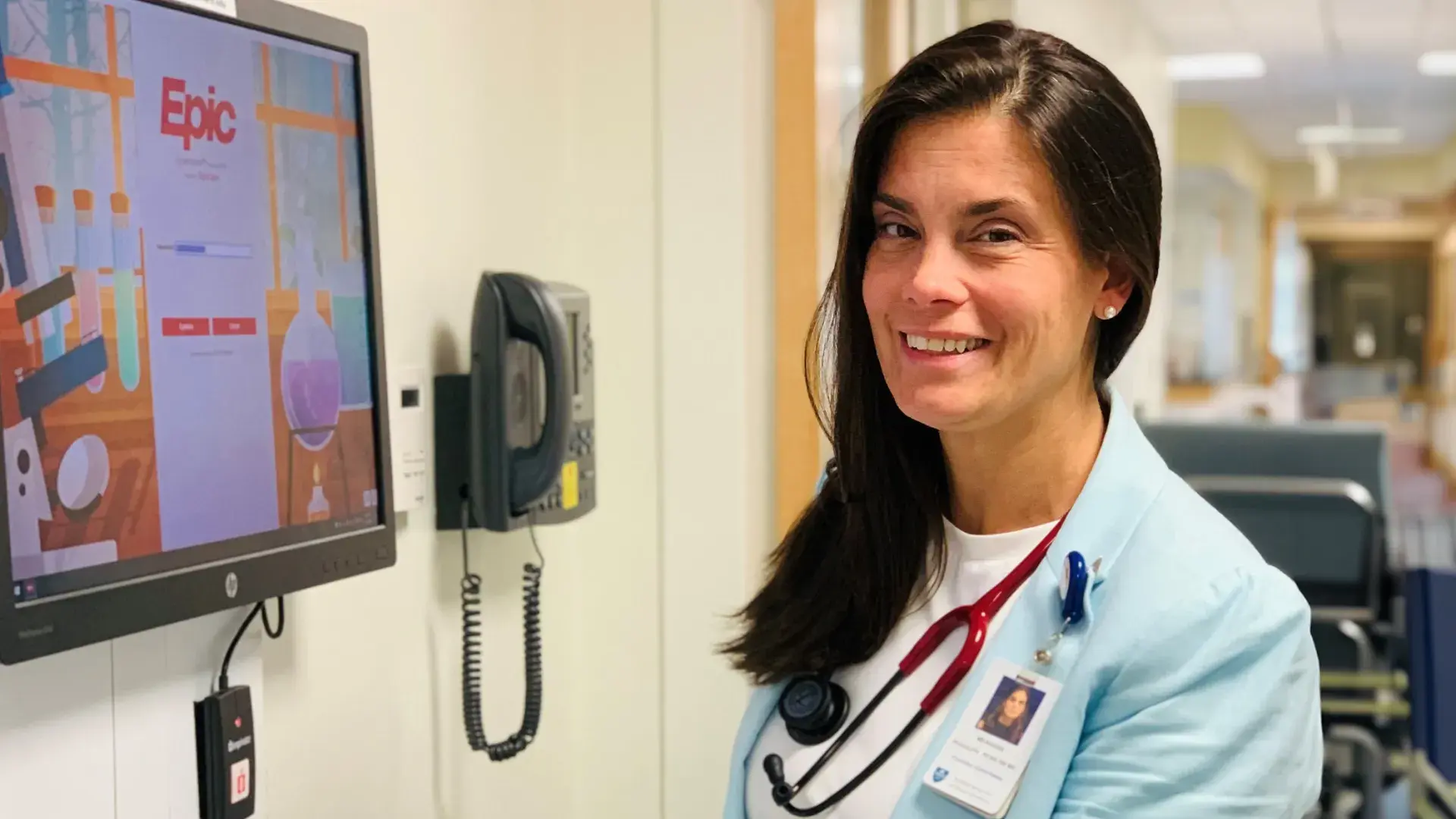
Nursing instructor, Psychiatric Clinical Nurse Specialist utilizes actual patient stories to convey impactful lessons
On any given day, Psychiatric Clinical Nurse Specialist (PCNS) Meaghan Rudolph is performing assessments, making diagnoses, and prescribing medications and treatments for patients with acute psychosis, bipolar disorder, significant trauma, or a patient who is simply struggling and unable to do basic life activities.
“It’s a little bit of detective work to figure out what's going on and try to determine a diagnosis and what treatments might help,” said Rudolph, who works at Massachusetts General Hospital. “Really, it’s the gamut of anything.”
Often times, the detective work pays off when Rudolph, a 20+ year veteran, discovers something that might have been overlooked.
“I just had a patient who had all these significant symptoms - she was tired, feeling really frustrated, irritable, and sad, and really struggling to concentrate and focus,” said Rudolph. “It really looked like depression, so her primary care physician (PCP) referred her. But in doing my assessment, and then also looking at some of her medical history and the lab result, it turned out to be a medical issue that looked like something psychiatric.”
Rudolph says it’s the day-to-day interaction with the patients in the hospital that is effective when teaching nursing students at the MGH Institute.
“Instead of teaching just cold facts about something, folding in clinical cases to demonstrate what you're trying to teach makes it infinitely easier to understand the concepts because there's a real person,” noted Rudolph.
To protect patient confidentiality, Rudolph will routinely change the patient names and some of the patient information, but the crux of the clinical content provides extraordinary learning opportunities.
“When you're able to tell students that this was somebody I just saw the other day, it helps bring it home and helps paint a more rounded picture,” said Rudolph. “I can say ‘Here's the story of Susie, and here's how she came in, and here's what she felt from her perspective, from the subjective side. Here's what I was seeing from the objective side. And here's why this is a diagnosis of schizophrenia.’ Something like that is invaluable for teaching.”
It’s that real world perspective that energizes not only Rudolph, but her students too.
“Students are getting responses from a real situation and not some generic case study that's vanilla and contrived to illustrate a point,” said Rudolph. “The real cases have dynamic answers and all the impact of the patient’s story, their whole life of culture and influences and things like that. I definitely see the interest of my students who want to know, ‘What did you do for this patient situation? Here's what we think but tell us more. How did it end up? What treatments worked?’ And you can definitely see the interest piqued a little bit more, and the engagement is increased.”
While Rudolph brings considerable experience to the classroom, she stays on top of trends with the world class clinical talent with whom she works.
“There's some of the top people in their field for so many different things,” Rudolph said. “For instance, the MGH Department of Psychiatry has many clinical research teams. So, it’s not just being in clinical practice, but so many of us are also in groups that have connections to some of the cutting-edge research in so many of these areas. We're either participating in some capacity or getting the fantastic benefit of working with our peers who can share with us information about their research.”
When Rudolph isn’t treating patients or teaching, she’s working in the hospital’s Translational Clinical Research Centers (TCRC) supporting research studies, either industry sponsored, or those initiated by someone at Mass General Hospital.
“I administer some very structured scales that give information to help us understand patients’ progress, or symptoms, or a particular issue related to a study,” she explained. “And then I do a lot of helping educate the staff about psychiatric nursing or psychiatric illness or mental health concerns, as it relates to the studies that we do on the TCRC.”
Rudolph is focusing on gun violence, prevention, and nursing education and integrating that into either psychiatric care or general nursing care. She is also the co-investigator on several different studies ranging from pharmaceutical to topics MGH researchers are pursuing.
“I love where I am and love what I do. I think my students do, too.”
Do you have a story the Office of Strategic Communications should know about? If so, let us know.
